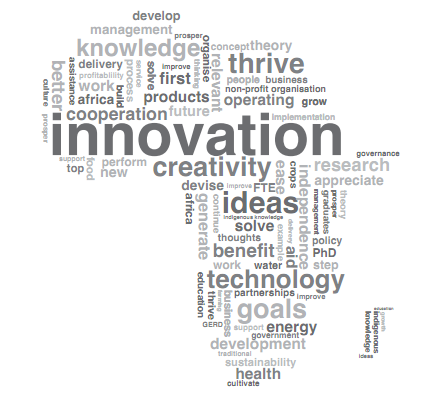(As posted on Medium)
Read an article (on international media) lately about some tech startup or innovation in Africa? Have the words “disrupt”, “revolutionise”, or phrases like “the next big thing” appeared? Have you found yourself believing that there’s a “tech revolution” across the continent (country) of Africa?
Add "disrupt" to that list 🙂 https://t.co/GaYSLs3lc6
— Emeka Azuka Okoye (@EmekaOkoye) September 22, 2015
It is understandable that the rest of the world (Africans included) is now a bit more aware, and perhaps (more) vested in the “Africa Rising” narrative. As a friend once put it: “Africa rising ; someone opened the oven early, the yeast is not ready”.
It is tedious, to always be on the reactive side of matters Africa — be it in the political, humanitarian , and now, tech framing. The instruments of global opinion-shaping media are skewed to the global North, even though there are, and have been concerted efforts to “Africanise” them; solutions offered to the “time to tell our own African stories” mission, if you will.
Reading piece after piece about African tech startups or tech innovations, coupled with working in one of the emerging ecosystems in “the home of the Silicon Savannah”, I have noticed the range of lexicon used to describe them. “The [insert Silicon Valley enterprise] equivalent of Africa/country X in Africa.” “ Startup X or innovation Y will “revolutionise” or “disrupt” industry Z.” Share others that come to mind.
It is tiring, and irking. But more importantly, it’s problematic for a number of reasons.
I appreciate that media works in a certain way — globally, regionally and internationally. Sensationalism seems to be here to stay. All that aside, my contention really is with the tech determinism that is created in framing nascent endeavours as “the next big thing(s)”. And it is interesting to note that many of the innovations/start-ups are often still trying to figure out what their business, profit and sustainability models are/will be, perhaps even trying to grasp the operating environments, the challenges and opportunities preceding the tech. Forward thinking is always welcome, but creating a false determinism, especially given the oft missing context of operational environments is, in my opinion, tainting the outlook on tech in Africa, by Africa, for Africa. I also don’t believe that many, if any of the startups or innovators interviewed (when interviewed) get to review the final drafts of these media articles. Even if they do, one would not fault them for not correcting the descriptions created, or for even performing to the media spotlight (no such thing as bad press, right?) . In an attention economy, you have to do what you can to gain traction, as many probably argue. It’s not to say that the industries in which tech innovations or startups operate or innovate won’t be disrupted; the framing in many a news article or documentary creates the false notion that this will happen in the next year, or two. And when that doesn’t happen, whispers of “why aren’t we seeing another M-PESA” start to be heard. Impatience starts to creep in. Any new or recycled attempt to figure a role for tech in some sector catches the hungry media’s radar. Another news article is quickly and eagerly put together. Yet another “next big thing”, another startup/innovation that will “revolutionise” or “disrupt”. A vicious cycle.
The problem, for clarity's sake,is the propagation of tech determinism, "solutionism" by default or design. #HowNOTtoWriteAboutTechinAfrica
— Nanjira (@NiNanjira) September 22, 2015
For our dear friends in local and international media who feel vested in writing about tech in Africa, note the following: You are not necessarily helping by using such bold declarations and descriptions, especially if research or background assessments to establish the context(s) around which these innovations/startups emerge is/are not part of the consideration. If you haven’t been informed already, please understand: technology is NOT a panacea. I do see why it is so tempting to make that the case for Africa. What were your news organisations writing about Africa (local and regional ones included) five, ten years ago, after all? A startup or innovation in, say, edtech, will not “revolutionise” learning. At best, it will amplify the preceding efforts. At worst, it will create further divides.

